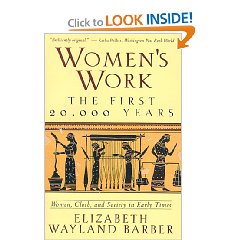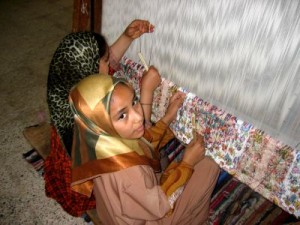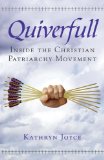Me, Working at Home, and the Bible
Since I struck out for the freelance life almost three years ago, I’ve wondered if I’m actually working. I work from home, I stay in my PJs to all hours of the afternoon, and I don’t make a lot of money. When people ask me what I do, and I say, “I’m a writer,” I wonder if that’s a “real job.” After all you actually have to take showers and work a specific amount of hours to have a “real job” right? Not to mention you get a regular pay check at a “real job.”
I’ve also been at odds with myself over housework. Because I’m the one who’s home a lot, I do most of the housework. It’s nice to break up sitting around on the computer with doing a load of laundry or picking stuff up. And who hasn’t put off writing a blog post to clean out the fridge? (OK, My Hubby wishes I did this.) I used to find all sorts of house stuff to do when I was in school too. It’s amazing what needs to be cleaned right now when you need to parse Greek verbs or write a soul-bearing blog post.
Then something happened last year. Something devastating: I actually wanted to to do housework, and figure out how to be a decent homekeeper. This feminist-who-did-not-want-to-be-an-absolute-clean-freak-like-her-mother freaked out. You can reading about my freaking out here.
And through all of this it never hit me what a total hypocrite I was. You see I’m writing this book called Career Women of the Bible. In the Bible most of the work was done at home, and women did a substantial amount of the work for the family to survive including house repairs, all the food preparation, making sure the children didn’t wander off into wadis or be trampled by sheep or goats, and they spun thread and wove all the textiles the family and the household needed. In fact women’s work–textiles–drove the ancient economy. Women wove and their men traveled and sold the textiles. They sent back the money from the textiles to their wives, and the wives spent it how they saw fit.*
So here I am being this big advocate that yes women worked and had actual careers in the Bible, and most of that work was done at home. In fact, most men worked from home because work and home hadn’t been divided by the Industrial Revolution yet. Even if you lived in a town or city, your shop or business was run out of your home. Home, work, and family were interwoven.
I realized what a disconnect I was having a couple of weeks ago when I read What Does “Workers at Home” Really Mean? I was cheering what Sandra was saying when it hit me. I was not practicing what I preach. All the women in the Bible I applaud, preach about, teach about, and storytell about worked from their homes. Their weaving drove ancient economy, and they were in charge of the family’s largest resource: food. The women apportioned the food and made it last from one harvest to the next.
The matriarchs were in charge of small moving businesses, and their weaving probably helped the family buy the thing they needed while roaming around Canaan and Egypt. Not to mention their weaving literally sheltered the family: they wove the goat’s hair in thread and wove the panels for the tent. (Women’s work was also setting up the tents and tearing them down.) Rahab was a prostitute yes, but she also ran an inn (most likely in her own home), and there is flax on her roof for weaving. The Proverbs 31 woman has girls who weave for her, and she sells the textiles. She also buys and sells property. Priscilla and Aquila made tents, and Lydia did travel for her business: she was a merchant of the purple cloth that only royalty could buy.
family buy the thing they needed while roaming around Canaan and Egypt. Not to mention their weaving literally sheltered the family: they wove the goat’s hair in thread and wove the panels for the tent. (Women’s work was also setting up the tents and tearing them down.) Rahab was a prostitute yes, but she also ran an inn (most likely in her own home), and there is flax on her roof for weaving. The Proverbs 31 woman has girls who weave for her, and she sells the textiles. She also buys and sells property. Priscilla and Aquila made tents, and Lydia did travel for her business: she was a merchant of the purple cloth that only royalty could buy.
In addition, the early church met in people’s homes. We know Priscilla and Aquila had churches meet in at least in three of their homes spread over Asia and in Rome. The first church in Europe met in Lydia’s home. Homes were the hubs of hospitality and grace. Homes are where the first Christians heard of God’s love and grace, ate together, and celebrated the Eucharist together.
And I didn’t think “real work” could happen in my home. I was wondering if I was really working and could honestly say I work just because I don’t go to an office and keep certain hours. I am a working woman in my home just like all the women of the Bible. Like them I am also a homekeeper. I am in charge of one of the things that cost us the most money: food. I shop and provide our meals. I love it. I love to cook, and I love to feed people. Nothing shows love like cooking. I also want my home to be a place to live in, be comfortable in, have people over, and not look like a couple of tornadoes go through it a week. So I pick up, do laundry, sweep, and mop, so that I don’t have to do a manic clean-out just to have somone over for dinner. For some reason I think Sarah, Deborah, Martha, and Priscilla would approve.
*For an extensive record of women and the textile industry read Elizabeth Wayland Barber’s Women’s Work: The First 20,000 Years Women, Cloth, and Society in Early Times. In fact, this is must read to really understand how intertwined the home and business were in the ancient world. “Cloth for the Caravans” is the chapter that deals with women weavers sending their wares out on caravans for trading. The letters between the husbands and wives they recovered are great!
(There are affliate links in this post.)

